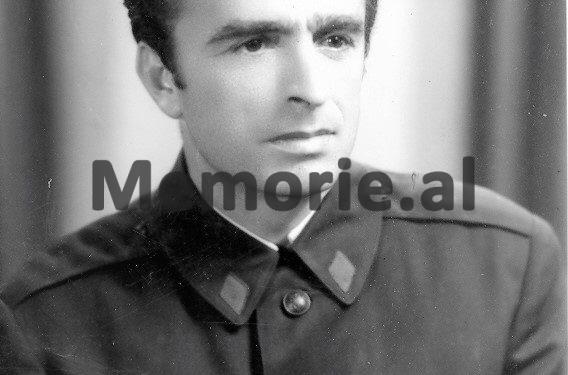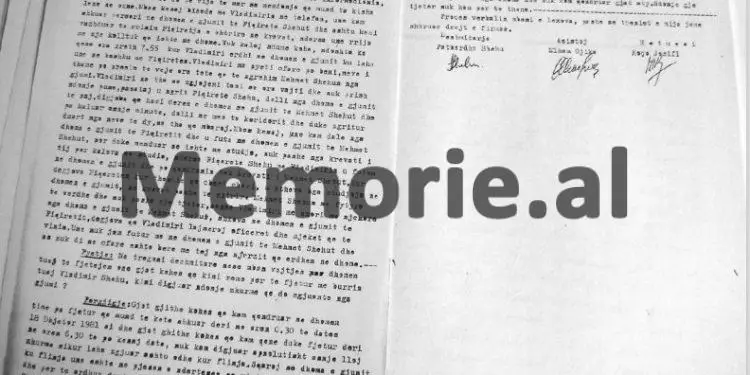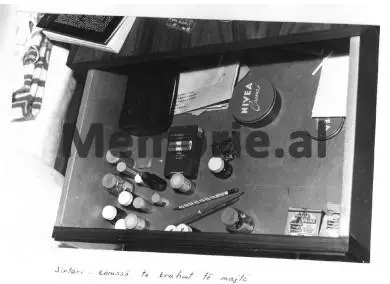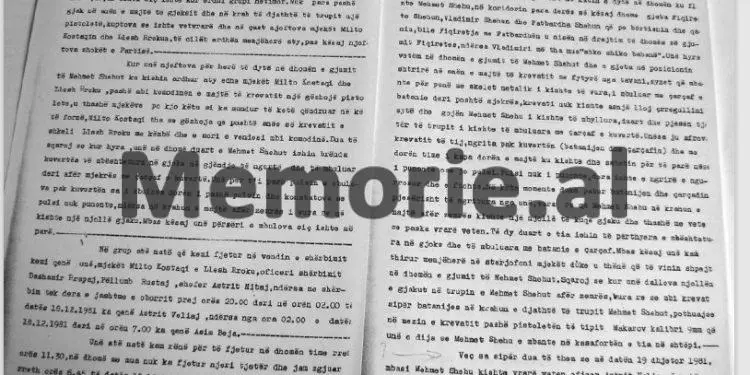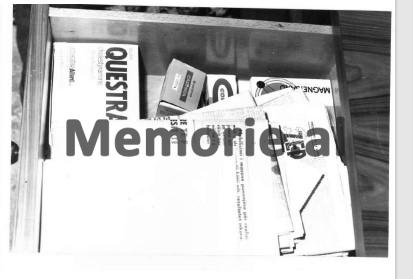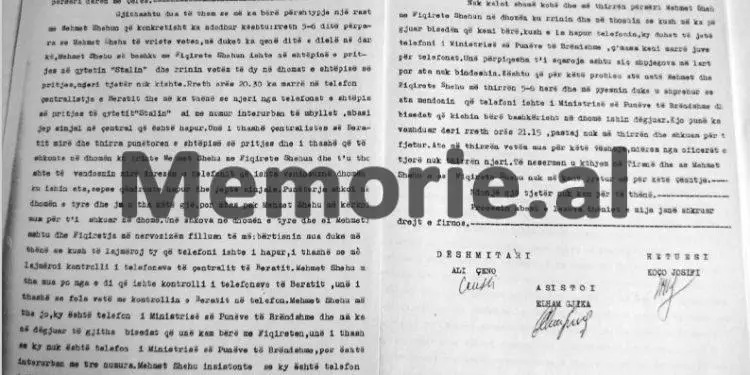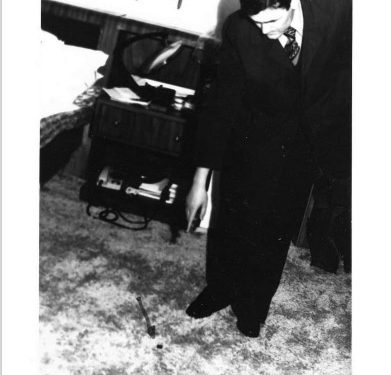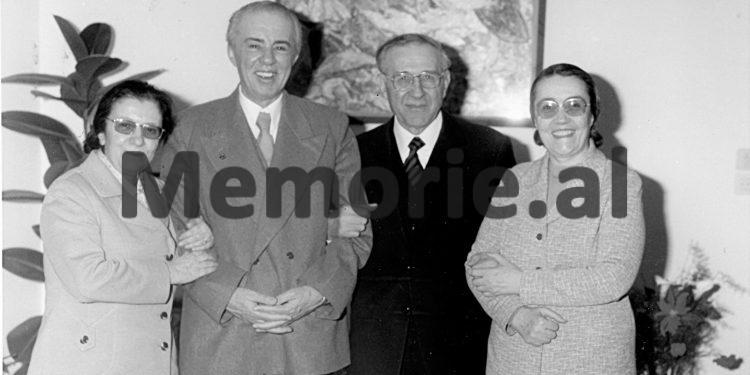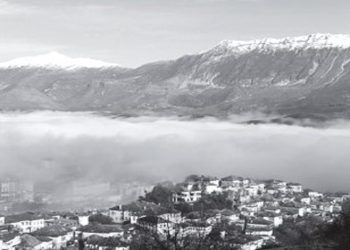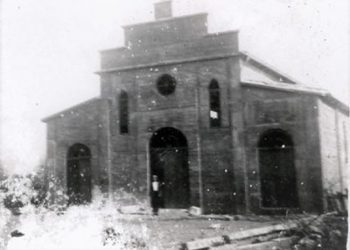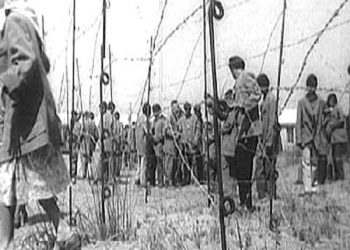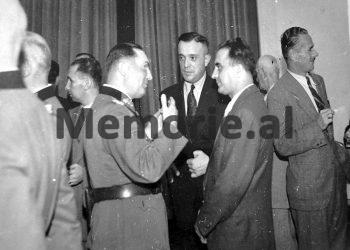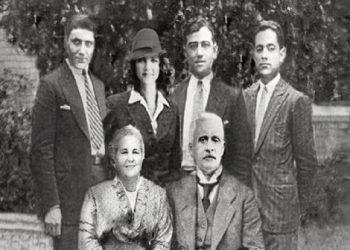From Dashnor Kaloçi
Part Five
Memorie.al / Forty-three years ago, at the dawn of December 18, 1981, the Albanian Prime Minister Mehmet Shehu, who had held that position since 1953, was found dead in his bedroom (according to the official version, from a pistol bullet) in the villa where he lived with his family, at the entrance of the “Block” of the high leadership of the PPSH, just a few meters from the building of the Central Committee of the PPSH, and also from Enver Hoxha’s villa. Although more than four decades have passed since that day, considered one of the most serious and publicized events of that regime, even today, there is still no clear and accurate version regarding what happened to the former Albanian Prime Minister, Mehmet Shehu, in the night leading to December 18, 1981! However, even after the ’90s, dozens of testimonies and archival documents have been made public regarding that event, “the murder or suicide of Mehmet Shehu,” which continues to be a subject of numerous debates and discussions, shrouding the truth about it in even more mystery!
Given this fact, in the framework of publishing dozens of testimonies and archival documents from the secret fund of the former State Security and the Ministry of Internal Affairs, or even the Central Committee of the PPSH, which we have published in these three decades after the collapse of the communist regime of Enver Hoxha and his successor, Ramiz Alia, Memorie.al has obtained the voluminous file of “the enemy Mehmet Shehu,” which was extracted from the secret fund of the former State Security (under the Ministry of Internal Affairs), where, with a few exceptions, most of them have never seen the light of publication and are published for the first time.
In the mentioned file, full and with relevant facsimiles, is the act-expertise of the operational-investigative group, which was established immediately on the morning of December 18, 1981, led by Koço Josifi (head of the Investigation of the Directorate of Internal Affairs of Tirana), the legal doctors Dr. Fatos Hartito and Docent Bashkim Çuberi, the Prime Minister’s doctors, Milto Kostaqi and Llesh Rroku, as well as the criminal expert from the Central Criminalistics Laboratory of the Ministry of Internal Affairs, Estref Myftari, assisted by senior officials of that ministry, Xhule Çiraku, Elham Gjika, and Lahedin Bardhi.
Additionally, in the voluminous file that we are making public, are the testimonies of the family members of former Prime Minister Mehmet Shehu, service personnel, and his escort group, as well as all other persons who were summoned and testified regarding that event. For more about this, the mentioned documents will inform you, which we are publishing along with the relevant facsimiles and photos.
CONTINUED FROM THE LAST ISSUE
THE ARCHIVAL DOCUMENT OF THE TECHNICAL-BALISTIC AND DACTYLOSCOPIC EXPERTISE REPORT OF THE PISTOL, SHELLS, AND PROJECTILE FOUND IN THE BEDROOM OF CITIZEN MEHMET ISMAIL SHEHU, BY THE HEAD OF INVESTIGATION KOÇO JOSIFI
Minutes
(Testimony)
Tirana, December 20, 1981
Question: Tell us, witness, after going to your bedroom, while you were about to sleep with your husband, Vladimir Shehu, did you hear any noise that would wake you from your sleep?!
Answer: Throughout the entire time I stayed in my room, without sleeping, until 12:30 AM on December 18, 1981, and during the entire time I was asleep until I woke up at 6:30 AM on that same date, I absolutely did not hear any kind of noise, whether I was awake or asleep.
I clarify that the bedroom where I slept is in the old part of the building, at the end of it, and to get to the corridor where Mehmet and Fiqrete Shehu’s bedrooms are located, you have to pass through two or three other rooms, in addition to the corridor, that leads to the new part of the building.
I also want to clarify that I saw the corpse of Mehmet Shehu with a yellowed face, lying on the bed, and I do not remember if he was covered or uncovered, since, as I said, I immediately left the room and did not stay long there. I have nothing else to say. After reading the minutes, I saw that my statements were written correctly, and I sign.
Witness Investigator
Fatbardha Shehu Koço Josifi
Assisted by
Elham Gjika
ARCHIVAL DOCUMENT WITH THE MINUTES OF QUESTIONING OF ALI ÇENO, COMMANDER OF MEHMET SHEHU’S ESCORT GROUP, BY THE HEAD OF THE TIRANA INVESTIGATION, KOÇO JOSIFI
MINUTES
(Testimony)
Tirana, December 18, 1981
I, Koço Josifi, an investigator at the Directorate of Internal Affairs Tirana, questioned the witness, Fiqrete Shehu.
After being questioned regarding the matter, she stated:
Last night, she told me; “Wake me up tomorrow morning at 8:00 AM.” Today, on December 18, 1981, around 7:55 AM, my son, Vladimir Shehu, came into my room. He found me there with his wife, Fatbardha Shehu. After Vladimir came into my room, I went to his bedroom to wake him up. When I got there, I saw he was yellowed and had blood on his shirt.
I went out and went to my room, where I told Vladimir and his wife, Fatbardha, that father had died. They both got up and immediately went to his room, where they notified the doctors and other friends. After it was calm, he told me to leave, as he would stay up late that evening, so tomorrow, wake me up at 8:00 AM.
Witness Investigator
Fiqrete Shehu Koço Josifi
Assisted by
Elham Gjika
ARCHIVAL DOCUMENT WITH THE MINUTES OF QUESTIONING OF ALI ÇENO, COMMANDER OF MEHMET SHEHU’S ESCORT GROUP, BY THE HEAD OF THE TIRANA INVESTIGATION, KOÇO JOSIFI
MINUTES
(Testimony)
In Tirana, December 18, 1981
I, Koço Josifi, an investigator at the Directorate of Internal Affairs Tirana, in the presence of comrade Elham Gjika, questioned the witness Ali Çeno, son of Shemsedin and Qamila, born in 1943, living in Tirana, with higher education, residing in Neighborhood No. 2, “Luigj Gurakuqi Street,” Building No. 4, Apartment 13, a Party member.
—I have been informed about the responsibility I bear under Article 202, in case I give false testimony.
Witness Ali Çeno:
On December 17, 1981, around 8:30 PM, after I arranged the service in the group, I notified that I was going home. After I got home, Dr. Llesh Rroku called me and told me on the phone that I was in the office with Mehmet Shehu and asked me which officers were on duty that night. Llesh asked me, and I told him that Pëllumbi and Ali were on duty. He asked if Ali was there, and Llesh replied that he was, and then Llesh told me that it would be good for me to come here too, so I would not be lying.
So, after I had dinner at home, I left and came to the group around 11:00 PM, and that night I slept there. During the night, Mehmet Shehu did not call for me.
On the morning of December 18, 1981, around 8:00 AM, when I was with the other comrades in the service room, his son, Vladimir Shehu, notified me over the intercom to go upstairs to the second floor, to Mehmet Shehu’s bedroom.
When I went upstairs to the corridor, in front of Mehmet Shehu’s bedroom, I found Fiqrete Shehu there, along with Vladimir Shehu and his wife, Fatbardha Shehu, crying. At that moment, Vladimir said to me, “Go into the room and see your father.” I entered the room and saw Mehmet Shehu lying in bed, yellow, and when I took his hand, he was cold. When I entered, he was covered with a blanket and sheet, just as it was when the investigative group arrived.
I did not see any blood at first, but on the left side of his chest and the right side of his body, there was a pistol. I realized he had committed suicide and immediately notified doctors Milto Kostaqi and Llesh Rroku, who came immediately. After that, I informed the Party comrades.
When I reported for the second time in Mehmet Shehu’s bedroom, where doctors Milto Kostaqi and Llesh Rroku had also arrived, I saw a bullet shell on the left nightstand of the bed. I said to the doctors, “How could this stay like this?” Milto Kostaqi said that the shell was under the side of the bed, that Llesh Rroku stepped on it with his foot and took it and placed it on the nightstand.
I want to clarify that when I entered the room, Mehmet Shehu’s hands were inside the blanket, resting on his chest, in a stiff position and covered up to his chin with the sheet and blanket. To check his pulse, I lifted the blanket slightly, just enough to expose his hand; I checked his pulse and found that it was not working, while on his left arm, near his heart, I noticed there was a bloodstain. After this, I covered him again as he was before.
In the group that night we spent at the service location, there were; I, doctors Milto Kostaqi and Llesh Rroku, service officer Dashamir Rrapaj, Pëllumb Rustaj, and driver Astrit Mitaj. While on duty, at the outer door of the courtyard, from 8:00 PM until 2:00 AM on December 18, 1981, was Astrit Veliaj, and from 2:00 AM on December 18, 1981, until 7:00 AM, was Asim Beja.
That night I went to sleep in my room around 11:30 PM; no one else slept in the room with me, and I woke up around 6:45 AM on December 18, 1981. Throughout the night, I did not wake up at any point, I did not hear any kind of noise, and my comrades did not notify me of any need or concern during the service.
I clarify once again that after being notified by Vladimir Shehu to quickly go upstairs to the second floor to the room where Mehmet Shehu was sleeping, in the corridor in front of this door, I found Fiqrete Shehu, Vladimir Shehu, and Fatbardha Shehu, who were shouting and crying. Fiqrete and Fatbardha headed towards Fiqrete’s bedroom, while Vladimir told me, “Go check on your father.”
I entered only Mehmet Shehu’s bedroom and found him lying on his left side in bed, facing the ceiling. The glasses he used for work were on, and he was covered with a sheet and blanket up to his chin. The bed showed no signs of disturbance; Mehmet Shehu’s eyes and mouth were closed, and his hands and the rest of his body were covered with the sheet and blanket.
As I approached his bed, I lifted the blanket (the duvet and sheet) slightly, and with my hand, I grasped his left hand, where there was also a watch, to check if his pulse was working. The pulse was not working; the hand was stiff and cold. At that moment, with the blanket and sheet partially lifted, I noticed that Mehmet Shehu had a red bloodstain on his left arm, near his heart, and I thought to myself, “He must have committed suicide.”
Both of his hands were crossed and resting on his chest, covered with the blanket and sheet. After this, I immediately called the doctors over the intercom, telling them to come quickly to Mehmet Shehu’s bedroom. I clarify that when I noticed the bloodstain on Mehmet Shehu’s body, near his heart, I observed that above the bed, on the blanket, on the right side of Mehmet Shehu’s body, almost in the middle of the bed, was the “Makarov” type pistol, caliber 9 mm, which I knew that Mehmet Shehu kept in his safe at home.
Additionally, I want to mention that on December 19, 1981, after Mehmet Shehu had committed suicide, officer Astrit Veliaj, who during the night of December 17, 1981, leading into December 18, 1981, when he was on duty in front of Mehmet Shehu’s residence at the entrance gate to the courtyard, noticed that around 10:00 PM on December 17, 1981, Mehmet Shehu had opened the entrance door of the building and leaning half of his body outside the door, he looked left, right, and forward into the courtyard, and after a very short time, he went back inside and locked the door again with a key.
I also want to mention that I was struck by an incident involving Mehmet Shehu, which specifically happened like this: about 5-6 days before Mehmet Shehu committed suicide, I believe it was a Sunday night. Mehmet Shehu, together with Fiqrete Shehu, was at the Guest House in the “Stalin” City, and they were alone in the guest house; there was no one else.
Around 8:30 PM, the operator from Berat called me and said that one of the phones in the Guest House of the “Stalin” City, the inter-urban one, should be closed because it was signaling at the central station that it had been left open. I told the operator from Berat that it was fine, and I called the worker at the Guest House and told her to go to the room where Mehmet Shehu was staying with Fiqrete Shehu and tell them to properly place the receiver of the phone that had been left open, as it was signaling.
The worker went to their room and told them this, but shortly after, Mehmet Shehu called for me to come to their room. I went into their room, and both Mehmet and Fiqrete, nervously began to yell at me, saying, “Who notified you that the phone was open?” I told them that the phone control from the Berat central notified me.
Mehmet Shehu asked me, “How do you know it was the phone control from Berat?” I replied that I spoke directly with the control of Berat on the phone. Mehmet Shehu told me, “No, this is a phone of the Ministry of Internal Affairs, and they have listened to all the conversations I had with Fiqrete.” I responded, “This is not a Ministry of Internal Affairs phone; it is an inter-urban phone with three digits.” Mehmet Shehu insisted that this was a Ministry of Internal Affairs phone, and they had listened to the conversations I had with Fiqrete.
I told him that this phone number is not from the Ministry of Internal Affairs, and I tried to show him the dialer again, reiterating that the Ministry of Internal Affairs does not have a phone here. He yelled at me, expressing, “Get out, you don’t know anything.” After that, I left their room and went to the service area.
Not long after, they called me again, Mehmet Shehu and Fiqrete Shehu, in the room where they were staying, saying, “Who has eavesdropped on our conversation? Who left the phone open? This must be the phone of the Ministry of Internal Affairs. What measures have you taken regarding the phones?” I tried to explain, as I mentioned above, but they were not convinced.
So regarding this issue, that night Mehmet and Fiqrete Shehu called me 5-6 times and asked me, expressing that they thought the phone was from the Ministry of Internal Affairs and that the conversations they had had together in the room had been overheard.
This continued until about 9:15 PM; after that, they did not call me and we went to sleep. They only called me about this issue, while no one else among the other officers was called. The next day, we returned to Tirana, and neither Mehmet Shehu nor Fiqrete Shehu asked me about this matter again.
I have nothing else to say.
After reading the minutes, I saw that my statements were written correctly, and I signed. Memorie.al
Witness Investigator
Ali Çeno Koço Josifi
Assisted by
Elham Gjika
Continues in the next issue




